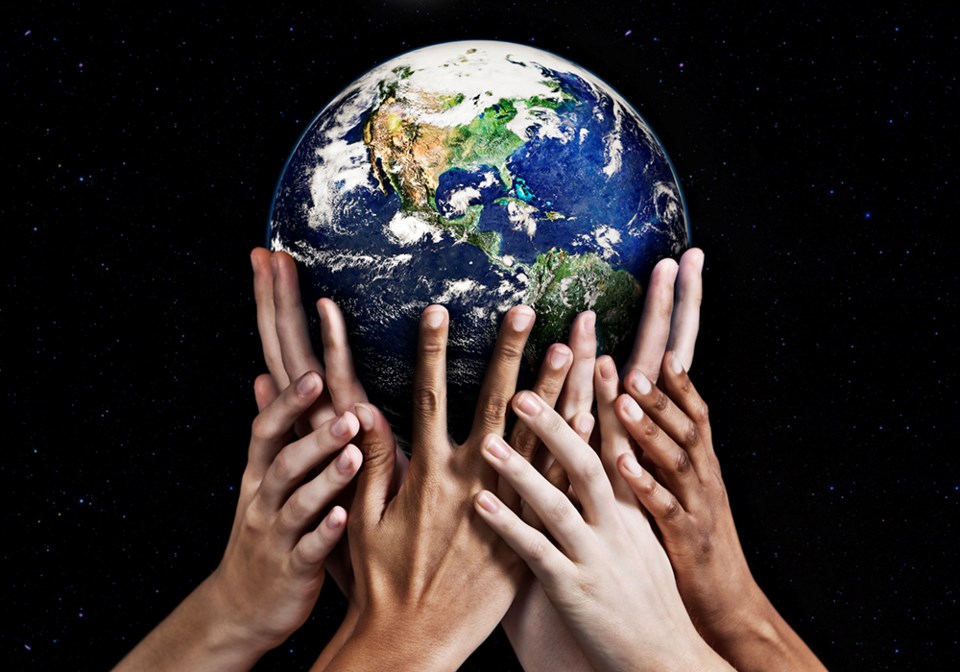So what’s it going to be for humanity? Carbon-wise or carbon-stupid?
Will British Columbia experience another summer and fall like 2021, with devastating weather events including a heat dome, wildfires and floods, or not? There are a lot of questions which only time will answer.
Given the results of the recent United Nations IPCC (International Panel on Climate Change) Sixth Assessment Report, which states that “the cumulative scientific evidence is unequivocal: climate change is a threat to human well-being and planetary health. Any further delay in concerted global action will miss a brief and rapidly closing window of opportunity to secure a liveable and sustainable future for all,” we all need to pause and reflect on what we can do. Emissions are emissions, they all go into our common global atmosphere.
Imagine a repeat of last year’s climate related disasters in BC alone, and imagine multiple repeats and possibly even more severe events. This is what will happen if we lose any hope of bringing global warming under control.
Add to that severe droughts, which are already occurring in the world’s food-producing regions, and the implications of mass migrations for the survival of millions. It is time for immediate and profoundly effective climate action. It is now or never, according to the science.
It is time for the carbon polluters among us to adopt low carbon technologies, behaviours and lifestyles. We need to learn to live differently to stop adding greenhouse gasses to the atmosphere.
One can fearfully speculate as to what will happen if we don’t. Looking at the well-established trends honestly, that prospect is truly frightening. As the United Nations secretary general puts it: “This abdication of leadership is criminal. The world’s biggest polluters are guilty of arson on our only home.”
He goes on to say that the recent report on climate “is a file of shame cataloguing the empty pledges that put us firmly on track toward an unlivable world.”
Climate impacts
In the news we see the climate impacts of the war in Ukraine, we see record atmospheric methane levels, ever increasing carbon dioxide emissions, drought and water shortages for major cities, record deforestation, newly announced oil and gas projects, continued pipeline construction, climate scientist desperation, a United Nations reference to countries that continue oil and gas development and production as “dangerous radicals,” and skyrocketing inflation everywhere.
What are we to think? Where does the average person go with all this negative and confusing information? The same place they have been going for decades now, into denial and apathy.
We hear “this can’t be happening” or “they’re making it up” or “it’s a hoax” or “I don’t want to think about it” or “it doesn’t matter what we do here in Canada, it won’t make any difference”
We suspect that the residents of Lytton or Fort McMurray don’t go there, or the farmers on the Sumas Prairie, because they have had climate change right in their faces. They don’t have the luxury of putting the devastation out of their minds, likely for the rest of their lives. If you don’t think your taxes pay for these disasters, think again.
We can’t get away with apathy and complacency anymore. We might feel pretty comfortable here in the qathet region, but the heat dome that killed more than 600 British Columbians was certainly here, albeit considerably milder than in the interior, where the air temperature was 50 degrees Celsius. It can happen again and we have considerable vulnerability to wildfire if the forests all around us get extremely dry.
It is time for us all to treat this as the emergency it is and that City of Powell River has declared. There are many things we can do to decarbonize our lifestyles. Every little bit counts in the big picture.
Bill Lytle-McGhee and Jack Anderson are members of qathet Climate Alliance.




